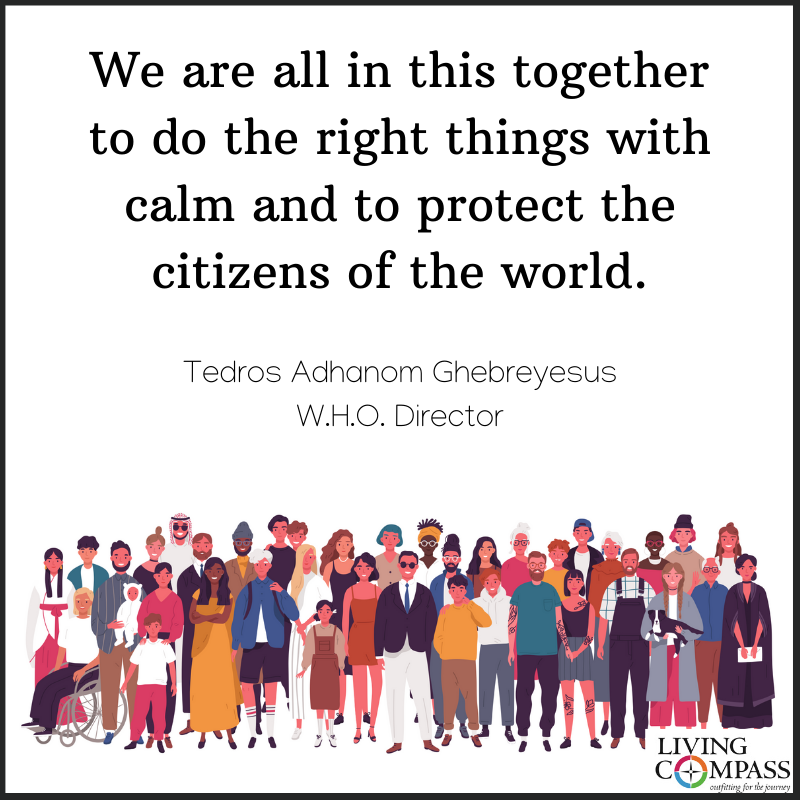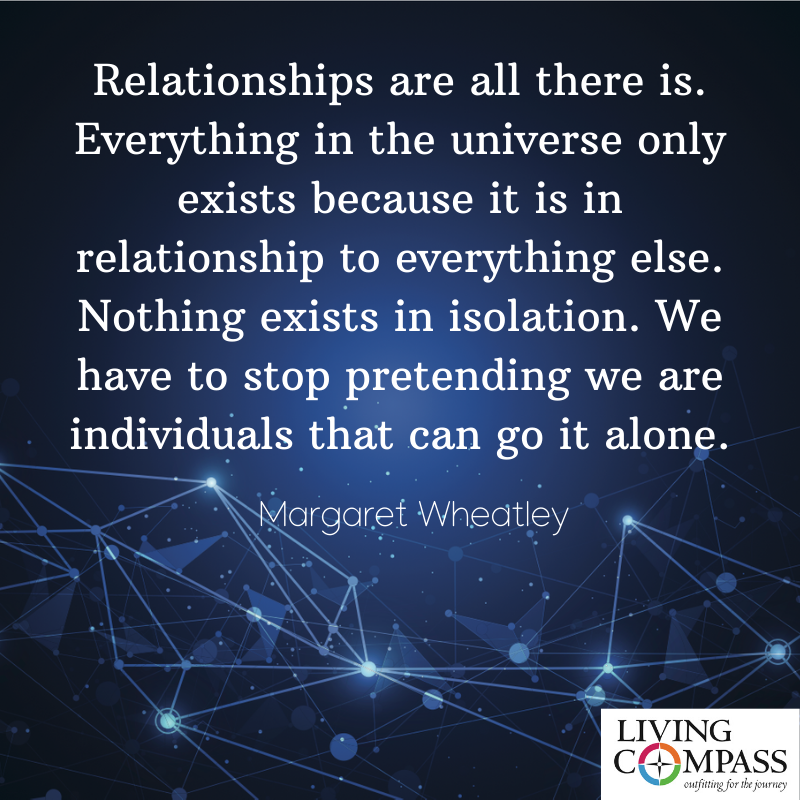The Hidden Curriculum
I am married to a former teacher. I have recently been thinking about the idea of the "hidden curriculum," a concept I learned from her quite a few years ago. This concept refers to lessons and values that students learn, sometimes unintended because they are not directly part of the subject being taught in the curriculum. This could include planning ahead, getting along with others, the importance of honesty, and other important lessons related to values and character.
I thought about the idea of the hidden curriculum in light of how all of us, adults and children, are currently being homeschooled in the midst of the current pandemic. I began to reflect on what unintended lessons I am learning in the midst of my own at home learning experience.
I'm guessing you are learning a few lessons of your own, and thus I will invite you near the end of this column to share yours on our Living Compass Facebook page.
Here is what I am learning at this moment, in no particular order.
1. We are all more interdependent and interconnected than I ever realized. I am reminded of a quote I heard a few years ago, "When 'I' is replaced with "We" Illness becomes Wellness. It will require a worldwide collective "we" to get to the other side of this
2. My life is enriched because I am listening to more music while at home, thanks, in large part, to the many artists who are sharing live performances online right now. Music (for me) is the language of the soul. Case in point—check out one of Yo Yo Ma's current online offerings.
3. The word essential has taken on new meaning for me. As in nurses, grocery store employees, skilled-care facility workers, teachers, mental health providers, food producers, childcare workers, pharmacy workers, truck drivers, first responders, doctors, farmers, and all who work in health care.
4. Heartfelt expressions of love and gratitude can sometimes make me cry. I'm referring to the video that shows hundreds of people who come out on their high-rise balconies in Atlanta to applaud the healthcare workers at a nearby hospital during each evening's shift change.
5. I now realize I have taken the opportunity to give and receive affection for granted. I so very much miss being able to hug my grandchildren and so many other people I love.
6. A long walk or a good run does wonders for my mood. Even more so when said walk or run is through the woods or in a park.
7. Ditto for the wonders of a good night's sleep.
8. Ten to twenty minutes of some form of spiritual practice each morning (mindfulness, centering prayer, spiritual reading) helps me to be less anxious throughout the day.
9. Brené Brown often has just the words that I need to hear. This week she wrote, "The pandemic experience is a massive experiment in collective vulnerability. We can be our worst selves when we're afraid, or our very best, bravest selves. In the context of fear and vulnerability, there is often very little in between because when we are uncertain and afraid our default is self-protection. We don't need to be scary when we are scared. Let's choose awkward, brave, and kind. And let's choose each other."
10. Parents are some of the hardest working and often most under-appreciated people I know. They need our encouragement and support, now more than ever.
11. Grief expresses itself in a myriad of ways, including anger, fighting, illness, hopelessness, distancing, shutting down, numbing out, and exhaustion. And the amount of grief and loss that so many are experiencing right now is getting very real. Let's give ourselves and others the space needed to feel and express loss.
12. The human spirit is resilient and beautiful in ways that continually inspire me.
13. Healing cannot be rushed, and it always takes longer, sometimes way longer than I wish it would.
When I look back over my life, I see that the times that I experienced the most profound spiritual growth were often during and after times of loss and upheaval. For this reason, I know this time contains a hidden curriculum that will forever influence the way I live my life. A wise friend of mine (thank you, Julia Gray) shared a quote this week that sums this up, "In a rush to return to normal, may we use this time to consider which parts of normal are worth rushing back to."
We are all students and teachers in this collective, unfolding journey. I invite you to share what you are learning by posting your wisdom on our Living Compass Facebook page, which you can find HERE.
What's been the hidden curriculum for you during this pandemic, and what have you learned so far?
Subscribe Now to Weekly Words of Wellness:
Click the button below to signup for the e-mail version of Weekly Words of Wellness. This weekly article can be shared with your community electronically and/or used for group discussion.
You can unsubscribe at any time.





